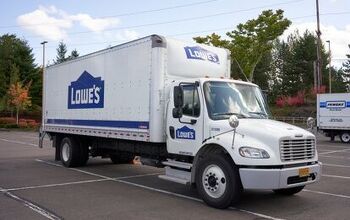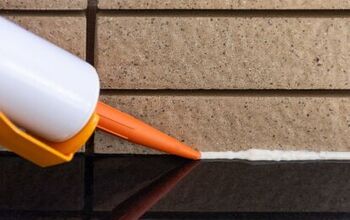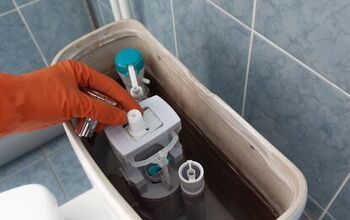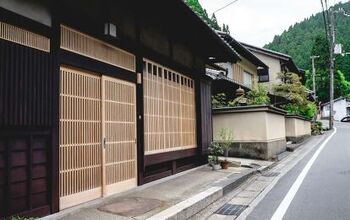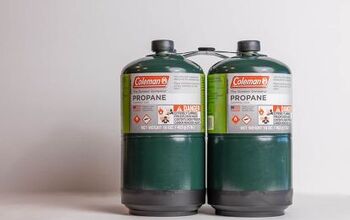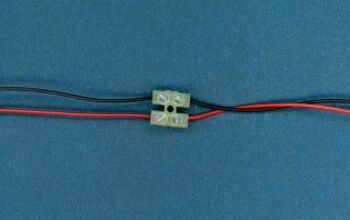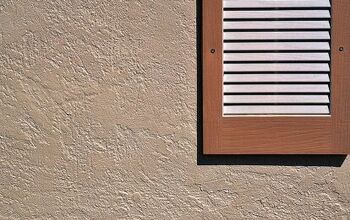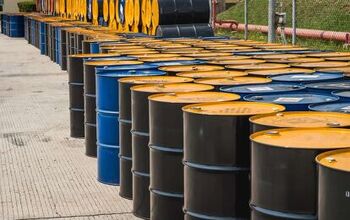10 Biggest Gardening Mistakes

Nothing worth doing is easy, and that includes gardening, which has a big learning curve. Gardening takes a lot of hard work, time, research, and practice. Even seasoned gardeners can make one of many common gardening mistakes.
The biggest gardening mistakes include overwatering and using too much pesticides. It’s also a mistake to rely on annuals and plants that aren’t native to your climate. You must wash new plants before bringing them home, and group plants with similar watering needs. Don’t rely solely on synthetic products, such as fertilizers, as you can have better luck with compost.
Do plenty of research before you buy seeds and plants that you aren’t familiar with. We put together a comprehensive list of the biggest gardening mistakes to avoid. Follow along to save yourself some time, stress, trial, and error.
10 Common Gardening Mistakes
1. Watering The Leaves
Many novice gardeners have great intentions, but may miss the mark in some aspects of plant care. For example, many people water their plants by pouring water onto the leaves. While some of the water may drip down to the soil, a lot of it won’t.
Much of the water will drip off the leaves and fall onto the ground. Not only is that wasteful, but it can create a mess, especially if you grow houseplants indoors. Ideally, you should hold the watering can close to the soil and water your plants deeply.
Doing so ensures that the water goes to good use and that the roots absorb as much liquid as possible. You will quickly notice the benefits of watering deeply after just a week or two.
2. Not Grouping Plants
Experienced gardeners can tell you about the many benefits of grouping together similar plants. Not only does it look good, but grouping plants can conserve water and time. The closer they are, the more easily you can water them as close to the roots as possible.
Group your plants based on their needs, such as how much water and sunlight they need. That way, you can prepare for a deep watering in one stop, instead of switching back and forth. You can give each of your plants a fair chance if you do it this way.
However, you shouldn’t group your plants too closely, or else it may backfire. Small plants need 6”-12” of space, and large plants need 18” to 36” of space in many cases. It varies between plants and may take some trial and error.
3. Overwatering
Everyone knows that plants need water, but how much water they need varies widely. Whether your plants are drought-tolerant or need water daily, in many cases, overwatering them is just as bad as not watering them. Overwatering can cause root rot, which makes the roots unable to absorb nutrients, as they become too damaged.
Your plants will suffer from a nutrient deficiency, and the leaves may quickly change colors. Excessive water can also wash some of the soil away in extreme cases and create a big mess. The longer your plants and soil stay soggy, the more likely you are to see mold and mildew.
You can also attract fungus gnats and other common garden and greenhouse pests if you overwater your plants. Carefully research how much water each of your plants needs, and water them accordingly.
4. Not Washing New Plants
Going to a plant nursery and buying new plants is quite exciting, that is, until it ends in disaster. Plant nurseries often order plants from all over the country, store them in greenhouses, and sell them to customers. Because of that, they often unknowingly import pests from different climate zones and regions.
Invasive pests can cause big problems in your garden and in some cases, even the local ecosystem. That’s because your local ecosystem isn’t equipped for this new pest, as it’s not native. You can avoid this problem if you carefully wash your new plants before planting them.
It’s also a great idea to quarantine your new plants for a few days up to a few weeks. You can also inspect plants before buying them, but many pests, like spider mites, are hard to spot.
5. Avoiding Native Plants
The type of plants that are most ideal for your garden varies based on where you live. For example, you can’t count on tropical plants to thrive easily if you live in Iowa. You can grow a palm tree, but it will take more work than if you grow a native tree.
Many plant nurseries carry tropical, exotic plants that can understandably entice you. However, you may notice that growing plants from other climate zones is quite difficult. It’s worth embracing native plants, as they are well-equipped to withstand the conditions in your climate.
There’s a good chance that you can find native plants that are just as beautiful as the exotic plants you have your eye on. Do some research and find out which visually appealing plants are most fit to grow in your climate. You’ll have much better luck and won’t have to commit to a rigorous maintenance routine.
6. Leaving Dead Growth
With time, plants will experience dead growth that may look bad, but it’s normal. You can tell everything is fine if your plant looks healthy, but you find dead growth at the ends of the leaves. However, you must remove the dead growth on your plants to encourage healthy growth.
Removing dead growth ensures that your plants don’t waste any energy on it. You must trim the dead leaves to give your plants an energy boost and help them bounce back. Dead growth can make your plants more vulnerable to pests and diseases as well.
That said, you shouldn’t prune your plants too often, or else you may hinder their growth. Some plants even have recommended pruning schedules, so it’s worth doing some research.
7. Using Excessive Pesticides
Many homeowners and gardeners use pesticides to protect their plants from pests. However, using pesticides is a slippery slope, as overdoing it can cause big problems. First, pesticides can negatively impact the microorganisms in your soil, which can hinder plant growth.
Second, you must consider that pesticides can harm other animals and bugs in your area, which includes beneficial insects. The last thing you want to do is inadvertently harm pollinators in your garden. Without pollinators, your plants will suffer, and you may even need to manually pollinate them.
Pesticides can also harm the environment, and many people avoid using them because of that alone. That said, you can use pesticides in moderation without having too bad an effect on your garden.
8. Wasting Organic Matter
Many homeowners accumulate a lot of organic waste, such as orange peels and apple pits. Luckily, many of them collect this organic matter and place it in a compost pile or bin. Doing so ensures you can repurpose this organic waste and benefit your garden in the process.
Composting can help you maximize your garden’s potential and encourage healthy growth. Mixing compost with soil and mulch can infuse your soil with healthy compounds and nutrients. Compost can also help prevent soil erosion and save you money on fertilizer.
Synthetic fertilizers simply aren’t as effective as compost in many cases. Think twice before you throw your banana and orange peels in the trash. Composting organic waste can yield great results and make your job much easier in the garden.
9. Sticking To Annuals
Planting annuals is fun and rewarding, but you must repeat the process year after year. However, you can save yourself a lot of time if you plant some hardy perennials in your garden. Perennials come back each year if you take great care of them, and that is more rewarding than replanting annuals.
It can also ensure that your garden looks vibrant as soon as the growing season begins. They will pop up almost as soon as the weather allows them to. Of course, you can still plant plenty of annuals, but relying solely on them can get expensive.
Buying a bunch of annuals from the local plant nursery each year can cost hundreds of dollars. You can even move some of your perennials inside to keep them going during fall and winter if you have the space.
10. Neglecting Mulch
No matter how nice and healthy your soil is, it could still use an extra layer of protection. It’s worth the time and money to mulch your garden once a year to maintain the benefits. Some people wait 2 years, and that is fine if the mulch is still in great condition.
Mulch can protect your soil from erosion, weeds, and nutrient deficiencies. That’s because mulch is made of organic matter, which slowly breaks down and infuses the soil with nutrients. Erosion protection is also essential, as eroded soil can weaken and remove topsoil.
Summing It Up
It’s a mistake to buy too many commercial gardening products, such as pesticides, herbicides, and fertilizers. You may also regret putting too much time into annuals and neglecting perennials. Avoid overwatering, but make sure to water the soil deeply instead of simply watering the leaves.
Related Guides:

Nick Durante is a professional writer with a primary focus on home improvement. When he is not writing about home improvement or taking on projects around the house, he likes to read and create art. He is always looking towards the newest trends in home improvement.
More by Nick Durante












